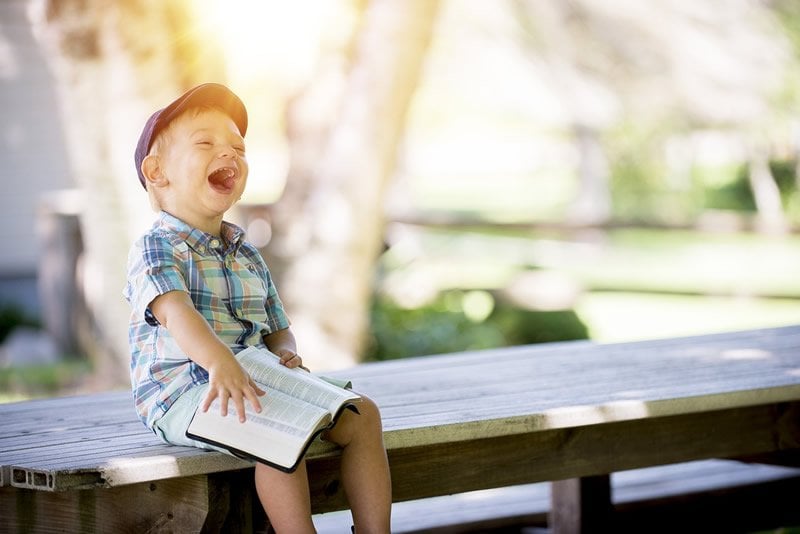Summary: Adding outdoor learning time has positive effects on both students and teachers. Researchers report children who were exposed to outdoor education had improvements in concentration, behavior, and learning, while teachers experienced better health, wellbeing, and job satisfaction.
Source: Swansea University
Outdoor learning has had a positive impact on both children and staff at a Swansea primary school, boosting their wellbeing and pupils’ attitudes to learning.
This was demonstrated following the school’s engagement with HAPPEN, a primary school network led by a team of researchers at Swansea University, who have published their research in PLOS One.
The school inspection body Estyn has just reported on the school – Crwys Primary – awarding an excellent judgment for wellbeing and attitudes to learning and citing the school’s commitment to outdoor learning as an example for others across Wales to follow.
HAPPEN is a network of primary schools led by Swansea University experts in public health, wellbeing and physical fitness aimed at improving the health and wellbeing of children in Wales. Research shows that healthier and happier children do better in school and that education is an important determinant of future health.
The HAPPEN team has been working with a number of schools across Wales. Crwys primary school in Three Crosses, Swansea was one of the schools involved in their research on outdoor learning. Crwys is a small school of around 145 pupils. The school does not have any green space of its own but makes use of some nearby woodland.
All pupils at Crwys spend a minimum of half a day in the woodland enjoying the great outdoors every week throughout the year. They take the curriculum outside, enjoying lessons such as science, art, and maths.
The HAPPEN team carried out interviews and focus groups with pupils and staff and found that:
- Pupils’ wellbeing, their enjoyment of school and their attitudes to learning have all improved
- There was also a positive impact on staff wellbeing, with teachers reporting increased job satisfaction: one said that it’s “just what I came into teaching for”.
The findings are timely and globally relevant as opportunities for children to access the natural environment are diminishing. Children are spending less time outside due to concerns over safety, traffic, crime, and parental worries. Modern environments have reduced amounts of open green spaces too, while technology has increased children’s sedentary time.
The Estyn report on Crwys Primary said:
“Outdoor learning has had a positive impact on pupil wellbeing and their attitudes to learning. The school has seen a rise in attendance and academic standards have also improved.

“School staff are proud advocates of the benefits of outdoor learning on pupils’ wellbeing. They have worked closely with Swansea University on a project which has proved that outdoor learning improves pupils’ health and wellbeing”
Emily Marchant from the HAPPEN team at Swansea University who led the outdoor learning research said:
“Our findings add to the evidence that just an hour or two of outdoor learning every week engages children, improves their well-being and increases teachers’ job satisfaction.”
Education is not just about lessons within the four walls of a classroom. The outdoor environment encourages skills such as problem-solving and negotiating risks which are important for child development.
If we want our children to have opportunities where “you don’t even feel like you’re actually learning, you just feel like you are on an adventure” and teachers to “be those people we are, not robots that it felt like we should be”, we need to change the way we think about school lessons.
Crwys Primary is showing the way in Wales, as Estyn has underlined. We would welcome other schools in Wales to our free HAPPEN network, so they too can make positive changes in their school to make their pupils healthier and happier.
Source:
Swansea University
Media Contacts:
Press Office – Swansea University
Image Source:
The image is in the public domain.
Original Research: Open access
“Curriculum-based outdoor learning for children aged 9-11: A qualitative analysis of pupils’ and teachers’ views”. Emily Marchant, Charlotte Todd, Roxanne Cooksey, Samuel Dredge, Hope Jones, David Reynolds, Gareth Stratton, Russell Dwyer, Ronan Lyons, Sinead Brophy.
PLOS One doi:10.1371/journal.pone.0212242.
Abstract
Curriculum-based outdoor learning for children aged 9-11: A qualitative analysis of pupils’ and teachers’ views
The relationship between child health, wellbeing and education demonstrates that healthier and happier children achieve higher educational attainment. An engaging curriculum that facilitates children in achieving their academic potential has strong implications for educational outcomes, future employment prospects, and health and wellbeing during adulthood. Outdoor learning is a pedagogical approach used to enrich learning, enhance school engagement and improve pupil health and wellbeing. However, its non-traditional means of achieving curricular aims are not yet recognised beyond the early years by education inspectorates. This requires evidence into its acceptability from those at the forefront of delivery. This study aimed to explore headteachers’, teachers’ and pupils’ views and experiences of an outdoor learning programme within the key stage two curriculum (ages 9–11) in South Wales, United Kingdom. We examine the process of implementation to offer case study evidence through 1:1 interviews with headteachers (n = 3) and teachers (n = 10) and focus groups with pupils aged 9–11 (n = 10) from three primary schools. Interviews and focus groups were conducted at baseline and six months into implementation. Schools introduced regular outdoor learning within the curriculum. This study found a variety of perceived benefits for pupils and schools. Pupils and teachers noticed improvements in pupils’ engagement with learning, concentration and behaviour, as well as positive impacts on health and wellbeing and teachers’ job satisfaction. Curriculum demands including testing and evidencing work were barriers to implementation, in addition to safety concerns, resources and teacher confidence. Participants supported outdoor learning as a curriculum-based programme for older primary school pupils. However, embedding outdoor learning within the curriculum requires education inspectorates to place higher value on this approach in achieving curricular aims, alongside greater acknowledgment of the wider benefits to children which current measurements do not capture.






